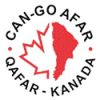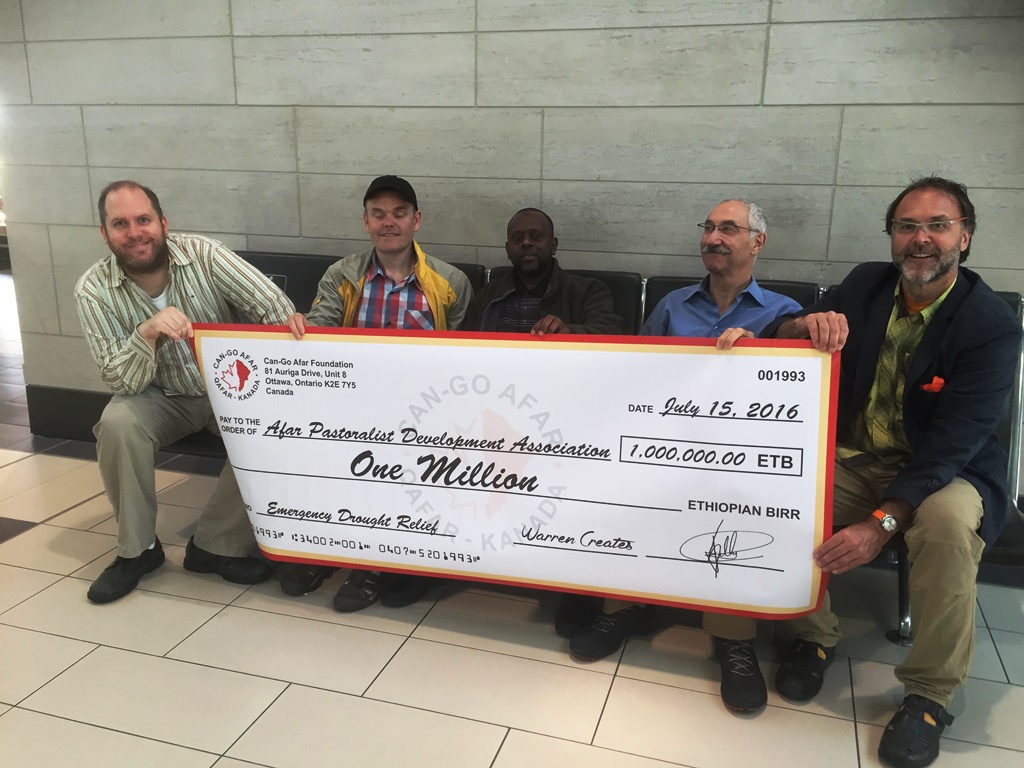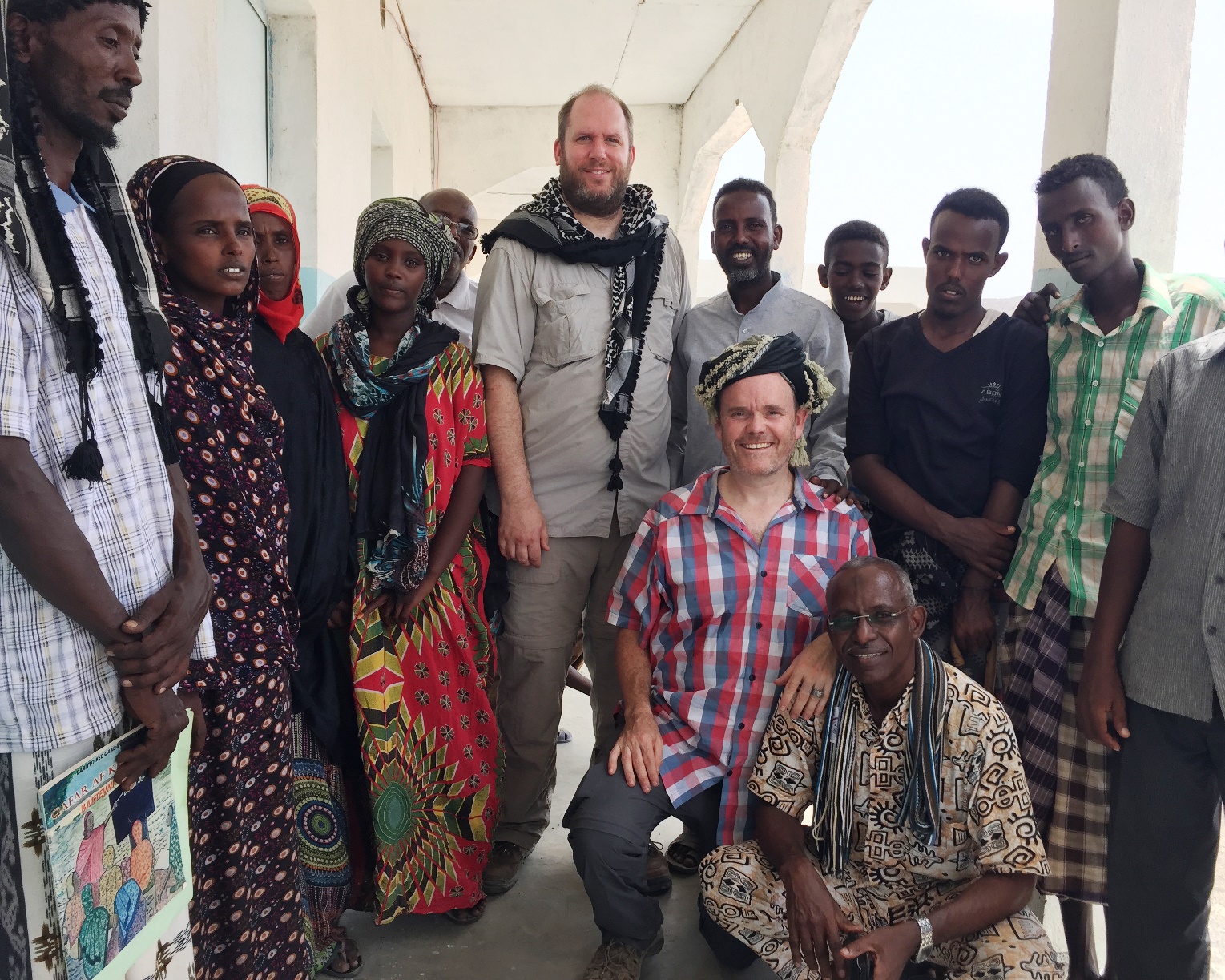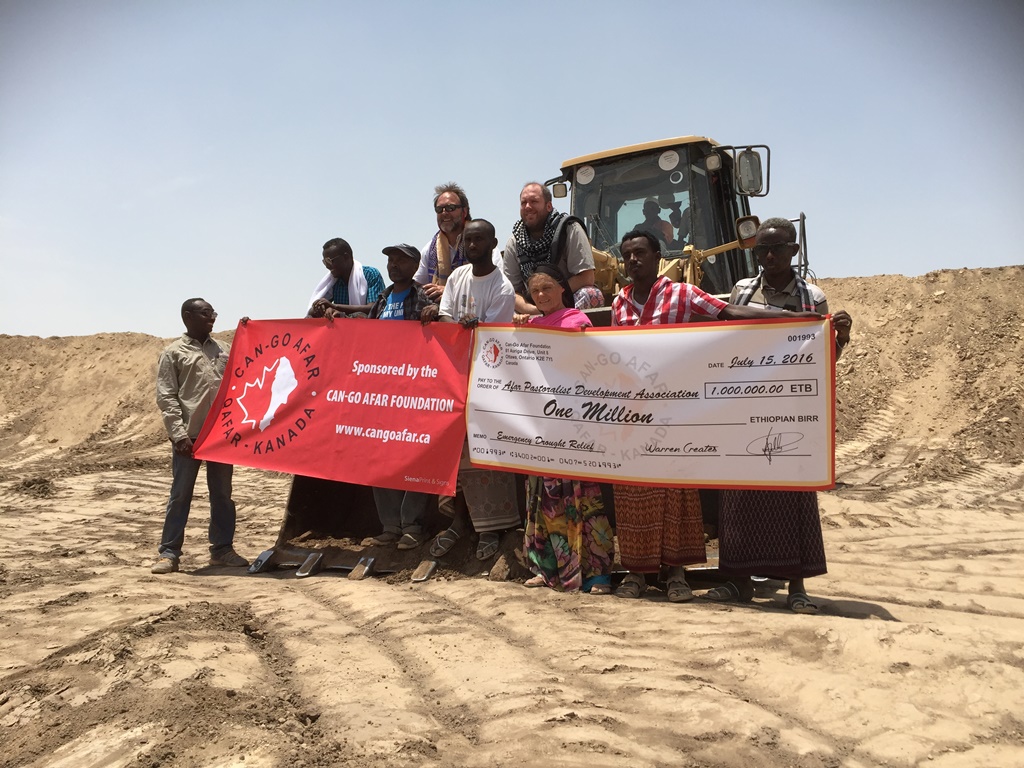After three days visiting our project partners in the Afar region of Ethiopia, the Can-Go Afar team was ready to set out on another leg of our journey, this time to neighbouring Djibouti where we are actively engaged in supporting the Afar community there.
Though the total number of Afar living in Ethiopia outnumber those in Djibouti by a margin of 10 to 1, in Djibouti the Afar represent a significantly larger proportion of the general population -- around 40 percent versus 2 percent in Ethiopia. And the differences don't stop there. Afar people in Djibouti reside in three regions: Dikhil, Tadjoura and Obock, two of which harbour bustling port towns, making for a sharp contrast to the primarily desert and sub-Savannah of Ethiopia's Afar region.
This trip, our second to Djibouti, would see us visit all three regions during a quick 48-hour period which will give us a unique look at how the Afar live in this country.
After our last breakfast in Semara, the CGA team bid farewell to the staff (and owner) at the Erta Ale Hotel as well as our new Mission Trip #12 friend, Yussuf, and packed ourselves into our trusty Land Cruiser for the long drive to Djibouti.
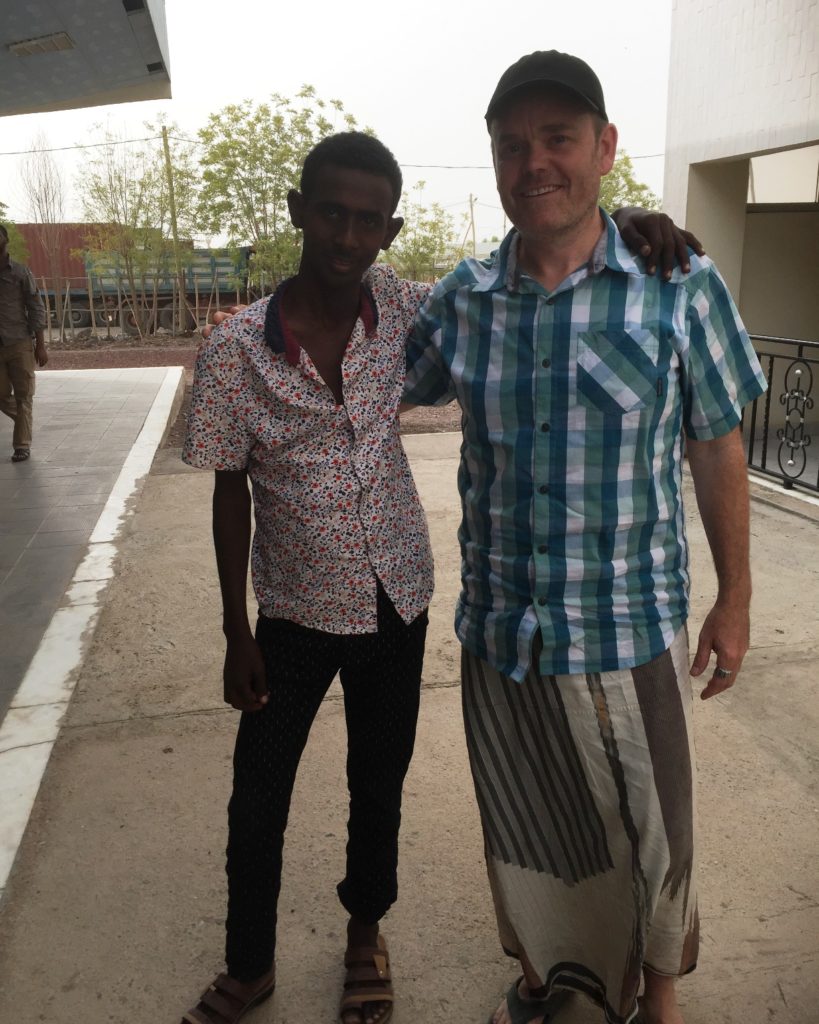
Venturing east, we traveled along a roadway that connects Addis Ababa to Djibouti City, a critical 800-kilometre strip of asphalt that provides the Ethiopian capital with the lion's share of its supplies via Djibouti's busy ports.
Thanks to it being a key trade route, this means we have to share the two-lane blacktop with what could only be called a "river of trucks". The steady stream of tractor-trailers shuttling goods back-and-forth between the two countries makes for an occasionally thrilling (aka treacherous) ride. As we cut across this upper part of the Great Rift Valley the landscape is a craggy combination of sand and dirt, intermingled with black rocks, which are souvenirs of ancient volcanoes.
It's a disorienting view, that can make you thirsty if you look at it too long.
After a few hours we stop for coffee and a stretch at Hay'yu, a busy Afar town just outside of Djibouti. Here we meet an Afar woman named Amina Ali who is selling handmade purses. After talking to her we are surprised to learn that she began making the purses thank to a business loan from a new micro-finance program in the region, which is supported in part by the Can-Go Afar Foundation.
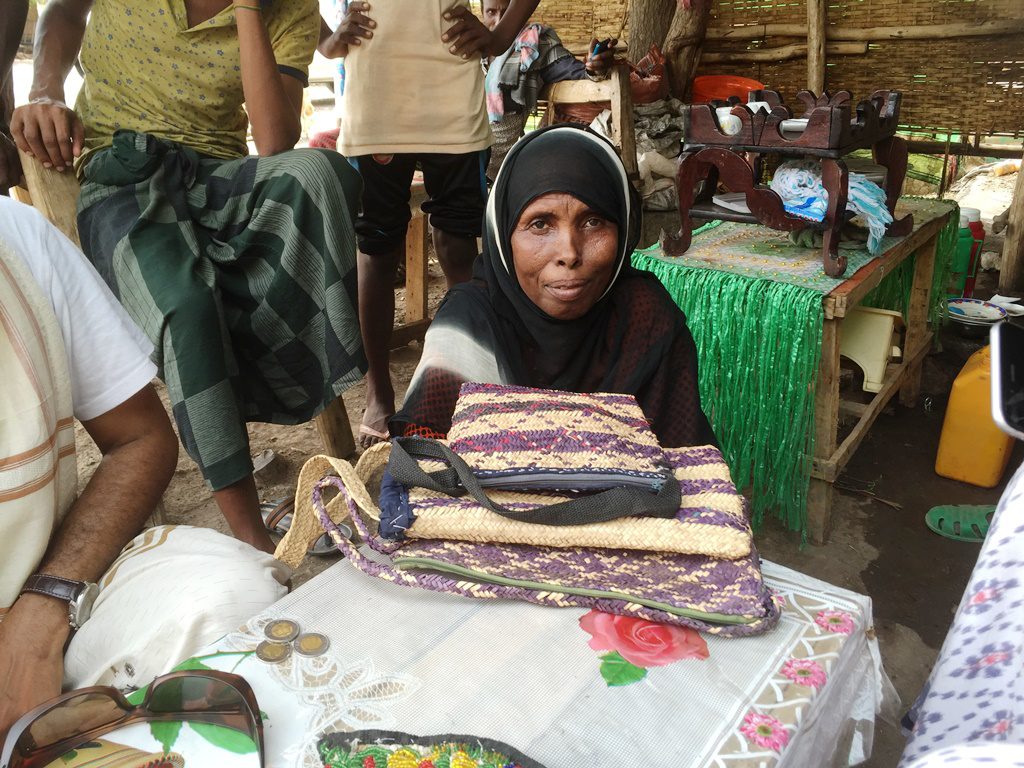 Of course, we bought Amina out. Don't be surprised if these purses turn up on the silent auction table at next year's Can-Go Afar fundraiser!
Of course, we bought Amina out. Don't be surprised if these purses turn up on the silent auction table at next year's Can-Go Afar fundraiser!
About an hour's drive later we stop at Eli Dar, an Ethiopa-Djibouti border town, where we eat a lunch of goat and injera, spiced up with a seriously intense homemade hot sauce. It's here that we meet our escort to Djibouti, an Afar doctor working with the Union pour le Développement Culturel (UDC), who will be our escort into the country.
The UDC has existed for nearly 50 years, making it the oldest association working exclusively with the Afar in the Horn of Africa.
After a quick meeting with the Djibouti Border Guards, we zip across the border. It's not long before you start noticing striking differences to Ethiopia. As a result of Djibouti's colonial past, everybody we meet speaks a mix of French and Afar; also, thanks to the higher elevation and its proximity to the ocean, the landscape is spotted with foliage including many palm trees. As we cross through the Afar Dikhil region it dawns on me that this is the first time I've seen a tree since I boarded our flight in Ottawa a week ago.
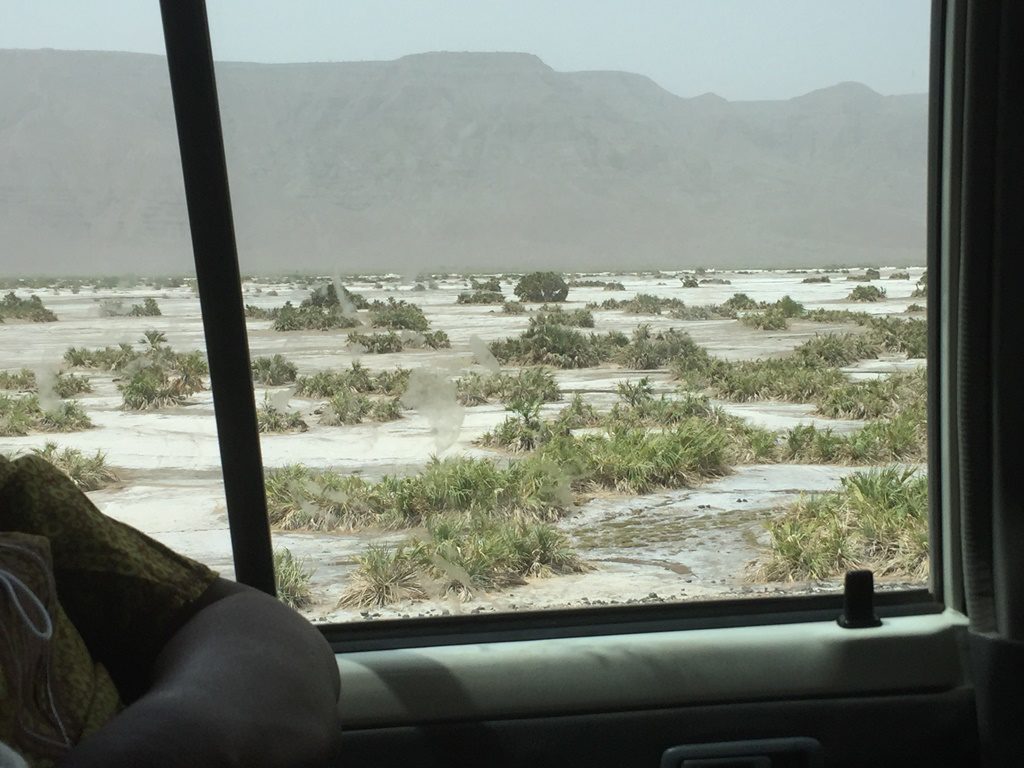 After getting stuck in truck traffic a few kilometres outside of town, we finally arrive at our destination, Djibouti city, in time for a late dinner. It is hot and humid when we arrive at our downtown hotel and the city is thriving -- not that we have much time to take it in. After a quick dinner (pizza and pasta) we drive off again to meet with representatives of UDC.
After getting stuck in truck traffic a few kilometres outside of town, we finally arrive at our destination, Djibouti city, in time for a late dinner. It is hot and humid when we arrive at our downtown hotel and the city is thriving -- not that we have much time to take it in. After a quick dinner (pizza and pasta) we drive off again to meet with representatives of UDC.
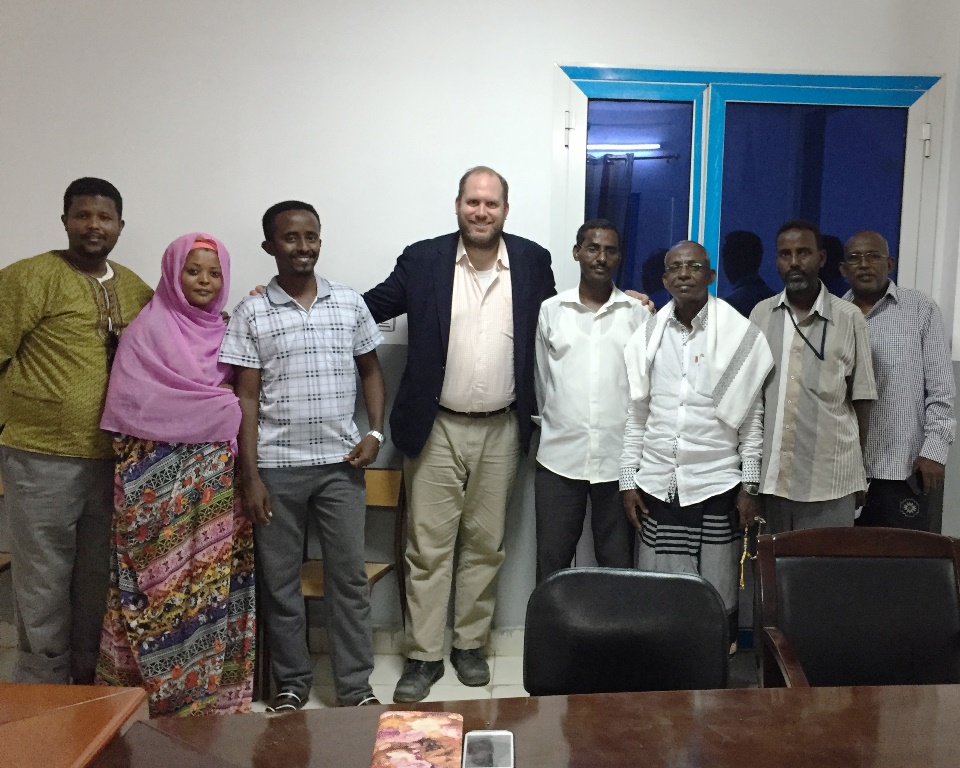
We have been working with UDC for the past two years, funding an adult literacy program in the remote Obock region which provides literacy, numeracy, and basic financial skills to Afar people in the remote region. During our meeting we receive an update on the school, and lay out a plan to visit it - along with the Afar fishing town of Tadjoura and the historic Lac Assal -- the next day.
It's a lot to cram into one day, but it will mean we've visited all of the Afar regions in the country. We just need to get up at 3:00 a.m. No problem! Inshalla, right?
Effective partnerships such as our one with UDC in Djibouti are critical to a humanitarian organization like Can-Go Afar, which is committed to helping issues of health and well-being, and alleviating the effects of abject poverty in the Afar region.
One of the ways we do this is by innovative fundraising efforts, like the Can-Go Afar Livestock Challenge our first crowd-funding campaign on GoFundMe.com. Once we learned that more than 2 million Afar goats and sheep died of thirst and starvation as a result of the 2015/2016 drought in the Horn of Africa, we knew we needed to take fast action.
With more than 200,000 Afar families currently in immediate need, The Can-Go Afar Livestock Challenge is hoping to raise $50,000 to help restock 1,000 goats and sheep that were lost during the drought. It’s straight-forward: $50 buys a goat, $100 will buy a sheep, and $500 buys enough goats for an Afar household of 12 people.
If we reach our goal, 100 of the neediest Afar households will receive a full complement of livestock and will be returned to their pre-drought conditions.
It couldn’t be simpler: Buy a goat (or a sheep), save a life.
To date we have raised nearly $10,000. This is a great start, and we thank all of our supporters — but we need to keep the momentum going if we want to make a real and effective change for the better.
We encourage you to check out our project at GoFundMe.com/CanGoAfar and pledge to help the Afar — the oldest indigenous tribe on earth — get back on their feet.
If you would prefer to donate in a more traditional way, please go to go to our PayPal page or fill out our Donation Form on our website.
Thanks, Inshalla, and Gaxxa Gey!
